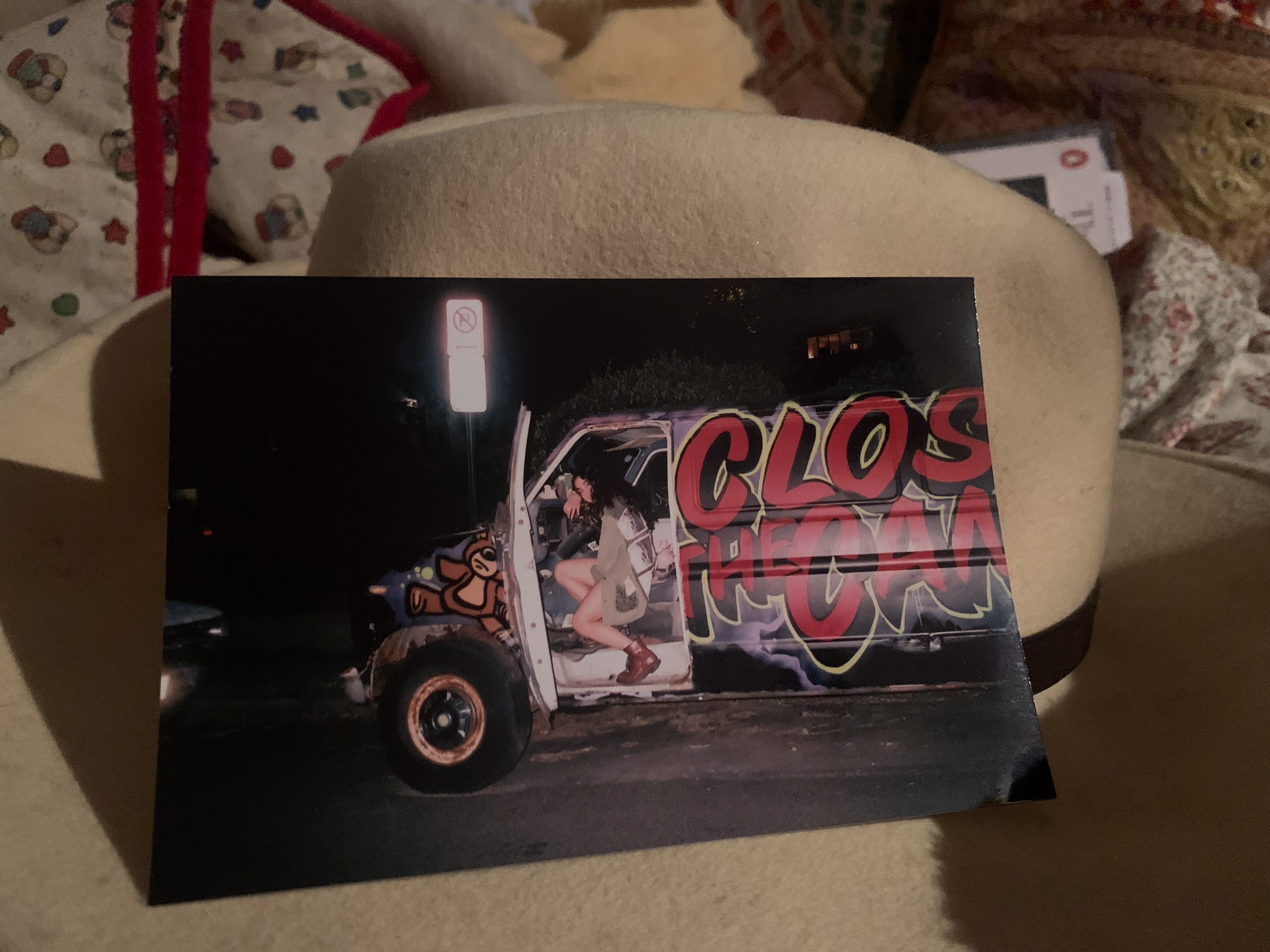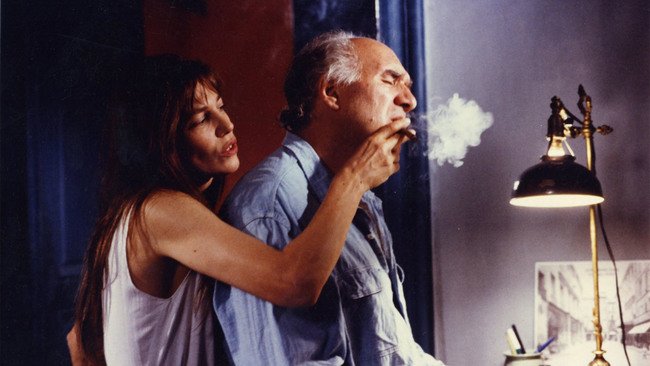she.
“I’ll write you a letter tomorrow. Tonight I can’t hold a pen.”
After all this time, the drafts, the trials and the searching…it’s as if I’ve never written. As if I’ve never said anything at all.
And what have I learned? With every striking image I encounter, I want to turn to him and watch him forget all about my presence, to remember, for a moment, the way beauty and sadness held his eye, and how, suddenly, all would become nothing to him. His eye for beauty and light is what drew me to him, and in the presence of beauty, and light, I’m reminded of his absence. I understand now— how he’ll always choose the image, just as the poet will choose the poem, the painter, the painting, and lovers, love.
We’re alike in that hunger, except he is more the artist. The alternative is stronger for me. I choose love over the art that floods the space of loss. Is it unfaithful? To have wanted the ones I loved more than the art I could have had in their absence? I remember him, sitting across from me at a cafe, saying the hell with art, it isn’t that important. I told him it was everything, that nothing was more important. And in the end, it was him who chose art, and I who chose love. We both lost. And when asked to act on our beliefs, he was the truer believer.
In the pain of departure, art arrives—until it doesn’t. Love, and art, rely on the momentum of passage. Love is strong in its coming and in its leaving, but it dries when it stays. Art, too is at its finest in the current of change. The possibility of love, the end of a failed one. But once the going of a lover becomes a lover gone, or the coming of a love becomes a love missed, then the source dries. It’s when the artist goes out in search of another heart to shatter, or the lover begins again the hunt for a new love, one with seasons and currents and unfamiliarity. For the artist, solitude is kind, and generous, when it’s new. When it’s the antonym of something else. But when the days pass, and solitude is only solitude, then it spills into a loneliness so terrible that even art can’t enter this space. This is where you’ve found me.
It’s where I once found you.
He sends her stories. She enters them. He says — these are not for you but yours to write, for someone else to live. She fixes her hair, leaves the notepad untouched by the window, wears the costumes of uncharted characters. And she is gone, when she goes. Does it torture to her?
To know she followed each story with her body — and spilled mortal lives into loves that could have lived beyond her, on paper?
It’s not that the water has stopped moving, it’s that there’s no water left at all. Tonight, there’s a pain so terrifying in me, it reminds me of a loneliness I haven’t felt since I was a little girl. It’s a state of total alone-ness…and it’s cruel not for what it is, but for what it brings back to me. It’s not that I am alone now, it’s that I have always been. It’s not tonight that scares me. It’s that this night holds a room where a little girl with a short brown pony-tail sits in a room and knows there is no one. Absolutely no one. Not a single soul. It’s not the loneliness of a dark night by the ocean, it’s the grey room with carpet and the stolen crackers and the trouble at school—the kind of solitude with long corridors in an unlit house, each room along the passage, my own. A thousand nights from a long time ago have found me again in this one. And besides the man on my mind, all the others that came before, and the ones that came after.
As I grow older, I can no longer carry one source of pain at a time. The loss of someone I loved multiplies beside the memory of others, just as one lonely night returns with the ones that have passed. Three years ago, it was one man, one loss. My art had its objective: to grieve him and all that was lost with him, to him. Now, my art is a wild horse with no sense of direction. It wants to charge, but can’t choose towards which lover, which family member, which regret. My hand wants to war with both the past and the present, and in the confusion of it all, neither source of pain is touched. Because how can an artist write of loss while they are losing? And of regret in the midst of the same error?
Water on Water (a short story) …
On a hot summer day in Southern Florida, a woman with long brown hair walks towards the sea with a mango soda.. A large sun hangs low in the sky beside a red lighthouse.. In the silence of a moonless evening, she watches the quiet lightening tear the sky above the water.. A fistful of ephermal moments
She sees the rain outside and decides to walk anyway. She wears a gold and blue bracelet, the first one her grandma bought with her own money. It was tight around her wrist, she was thinking it may not be that many years before it won’t fit her. The rain hardens until she is shivering by the ocean, making the long walk back. A fisherman steps out of the water and towards her, offering his rain jacket.
On the third floor above the sea, just as she begins to write, she looks to her arm…she is waiting to see that blue and gold band that she loved more than anything she’d ever worn. She stares at the bare skin, as if the longer she stares, the longer she can keep the truth away.
A surge of pain so unbearable moves through her. Somewhere in the endless walk back home, under the heavy rain, in the sudden cold of a Southern summer day, a bracelet that carried a moment from 40 years ago is gone, and with it, that afternoon a young Syrian woman walked into the jewelers with the money she’d saved, and reached for the one she wanted.
Forty years. Then the time it spent with the woman by the sea…as brief as the life of a setting sun beneath the red lighthouse.
She tempers the pain, or tries to, by reminding herself she’s lost worse..bigger things, lovers, a mom, her heart. But she can’t seem to walk the shores anymore without her restless eye begging the sand to return to her what she wanted, just one loss of all the losses, returned to her. It would make the others bearable, negligible even. She believes so.
“I mean not that the waves will go away like the events we have forgotten, but that they will go away like forgetting itself.”
“The sweetness of hope will last only until I take action, at which point it will vanish. I force my mind to realize this.”
“I did not want to crush her spirit, only to free my own.”
“You were incomplete without your sadness.”
“My sorrow raised you. I hope it did not poison you.”
“She knew that Joe was not touching her mother’s core. That core was a hot thing—hot and cold both, to be precise—and when it was touched in any way the result was discomfort for everyone. Joe kept her mother comfortable and he was comfortable in return.”
“Here I am wondering about how to react to the sadness of those who cause you sadness.”
“I had a clear sense of becoming something I had not been before.”
“It was wrong of me to hope for her, because my life was loaded up, and she was not the thing that would, if added, make it lighter.”
“People think that because I paint, painting has to come first. But painting is observing, so it always comes second.”
“Days before, I had been certain that I wanted her but wouldn’t act on it. Now I was less sure that I wanted her and less sure that I was capable of resisting. I had a clear line to my uncertainty and she was tangling it.”
“She did not, despite her story, look like a woman who had made sacrifices.”
“Time had taken its toll on the young bodies we remembered using for disreputable ends.”
"Every candle I lit, every long wooden match I gave a dime for and struck against the bottom of the coin box, making a small disruption of sulfur and light in the church, was by way of reminding God that I was still here, waiting. I knew that it could come at any time, and that any time could be a long way off, but I thought that by constantly placing myself in God's presence, He might be more inclined to think of me sooner rather than later. I did not ask for more than my share, one sign. That which was by rights mine because I believed and was ready to listen."
"There was a loneliness in being answered, as if God and I had less to say to each other now."
"If I gave up the thing I loved most in the world, then maybe God would respect my desperation."
"You can't pick up and leave everything behind because there is too much sadness in the world and not enough places to go. But at seventeen, I didn't understand that, and so I left."
“They get stuck inside the thing they’re searching for.”
“Every time I finish a painting, I always said to myself, should I have gone further, tried a bit harder, taken the risk?” …
“Haven’t you ever damaged a painting going “further?”’ …
“I have, several times. You have to take the risk. But not everybody is capable of it. Not everybody can invent new things…I need a masterpiece, or nothing.”




































































































